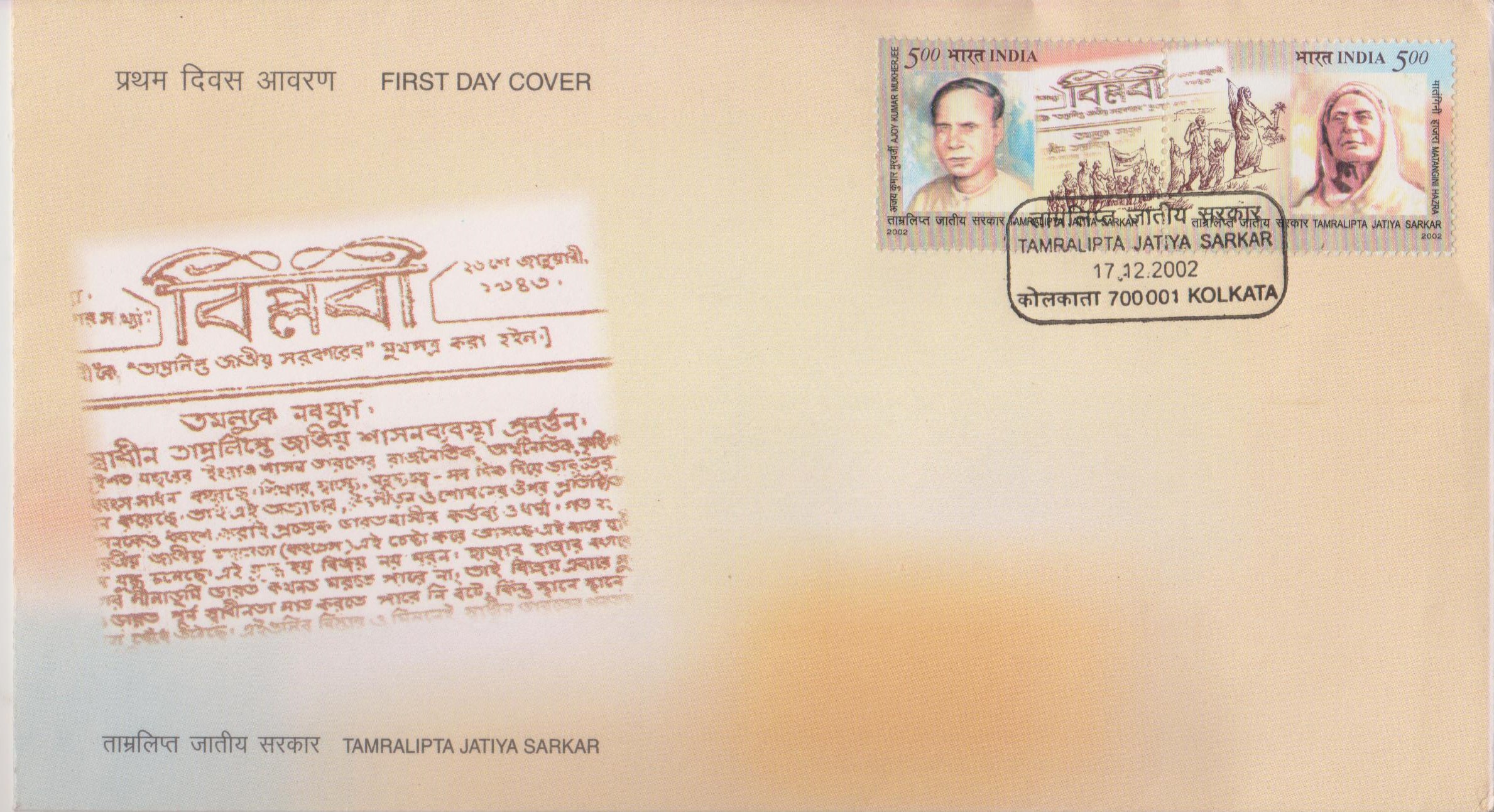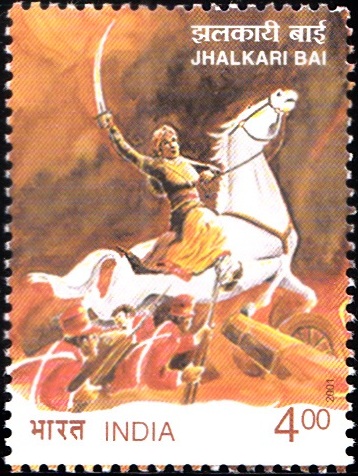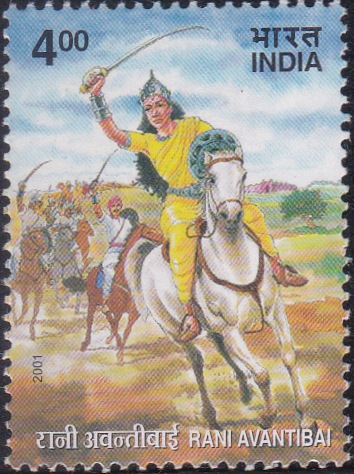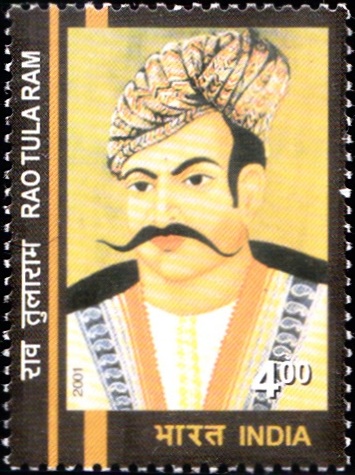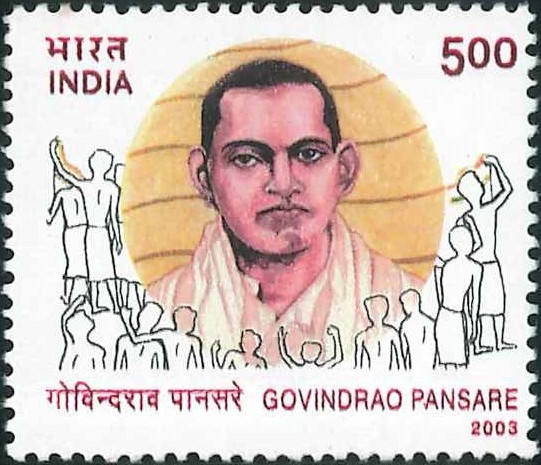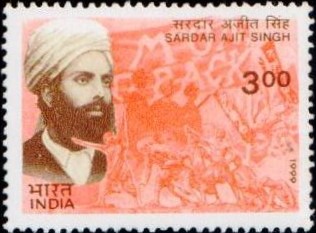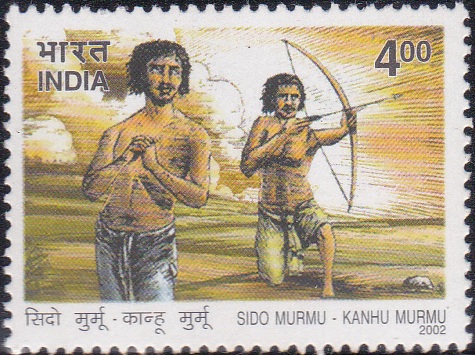
Sido Murmu – Kanhu Murmu
A commemorative postage stamp on Sidhu and Kanhu Murmu, leader of the Santhal rebellion (1855-56) in Eastern India against British colonial authority and corrupt zamindari system :

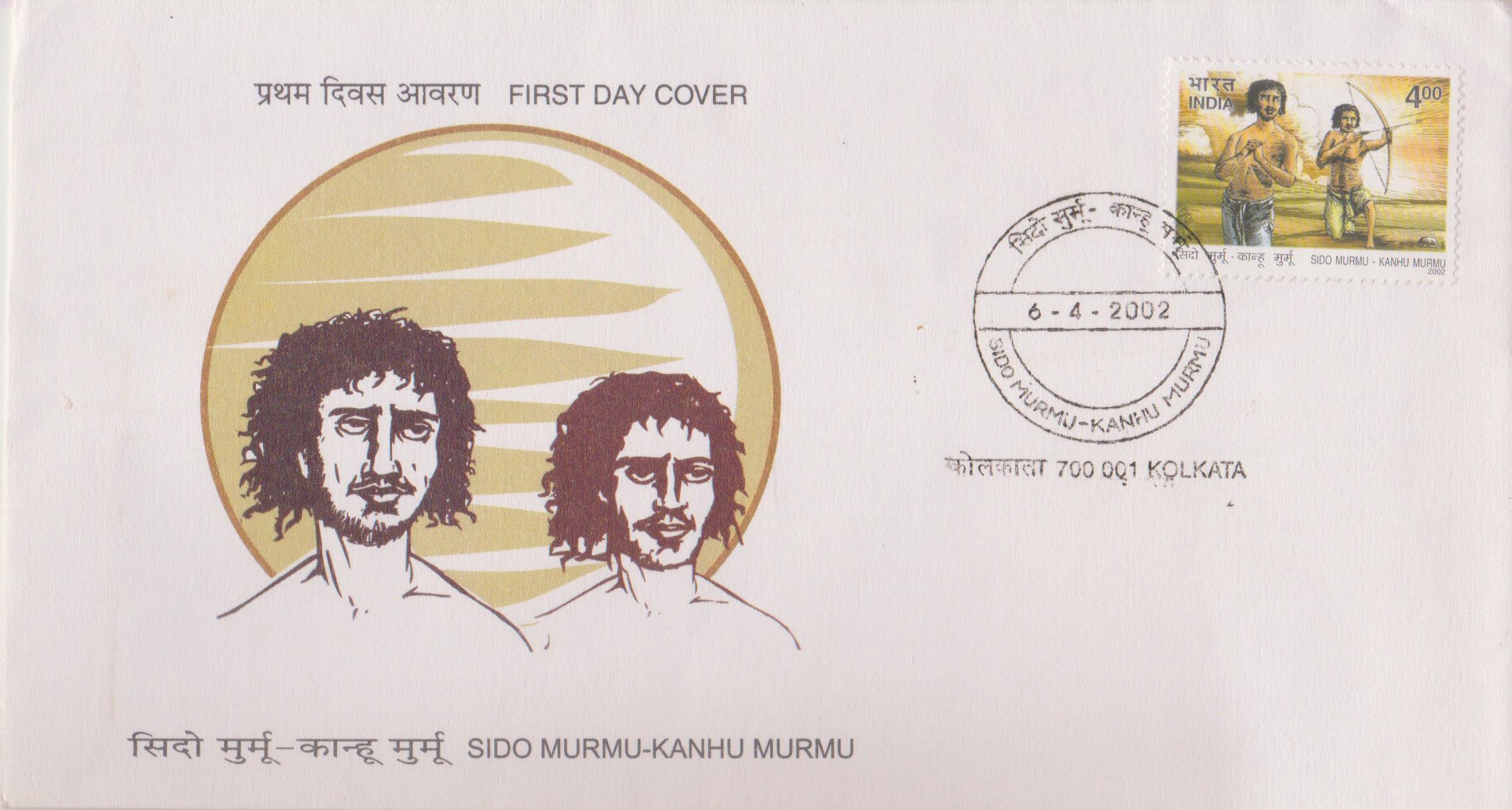 Issued by India
Issued by India
Issued on Apr 6, 2002
Issued for : The Department is proud to pay homage to the valiant martyrs Sido Murmu and Kanhu Murmu through issue of this commemorative postage stamp.
Credits :
Stamp & FDC : Kamleshwar Singh
Cancellation : Alka Sharma
Type : Stamp, Mint Condition
Colour : Four Colour
Denomination : 400 Paise
Overall size : 2.90 x 3.91 cms.
Perforation : 13 x 13
Paper : Imported un w/m stamp paper
Stamps Printed : 0.4 million
Number per issue sheet : 40
Printing Process : Photo Offset
Printer : Eagle Press Pvt. Ltd.
About :
- The Murmu brothers, Sido and Kanhu, were the leaders who masterminded the famous Santal Hul (liberation movement) of 1855-57, a heroic episode in India’s prolonged struggle for freedom.
- Resistance of the indigenous peoples to British rule in India started almost immediately after the East India Company captured political power in many parts of the country. Their sheltered habitats were shaken to the very foundations by intruders like money lenders, traders and revenue farmers, who descended upon them in large numbers in the wake of the imposition of foreign rule. The intruders were crucial links in the chain of exploitation of colonialism. They were the instruments through which the indigenous groups and tribes were brought within the influence and control of the colonial economy.
- Discontent had been simmering in the Santal Parganas (presently in the State of Jharkhand) from the early decades of the nineteenth century, on the face of oppression and exploitation of the indigenous Santals by the authorities as well as immigrants. The emergence of Sido and Kanhu, youthful, dynamic and charismatic, provided a rallying point for the Santals. Hailing from the village Bhognadih in Sahibganj district, Sido Murmu and Kanhu Murmu had long been brooding over the injustices perpetrated by the oppressors. The situation had reached a flash-point and, not surprisingly, a small episode that took place in July 1855 triggered one of the fiercest uprisings that the British administration ever faced in India.
- Earlier, on 30th June 1855 a large gathering of Santals, under the leadership of Sido Murmu and Kanhu Murmu had declared themselves free and took oath to fight the foreign rulers as well as their agents. The Santals were in this mood of militant enthusiasm when a Police agent confronted them on the 7th July and tried to place the Murmu brothers under arrest. The angry crowd reacted violently and killed the Police agent and his men. The event sparked off a series of confrontations with the Company’s Army, and reached the scale of a full-fledged war.
- Led by Sido and Kanhu, the Santals made tremendous gains initially and captured control over a large tract of the country extending from Colgong on the west to Rajmahal hills on the east and nearly as far as Raniganj and Sainthia on the south. However, they could not hold on to the gains as the mighty military machine of the East India Company came down heavily on them. The courage, chivalry and sacrifice of the Santals were countered by the rulers with veritable butchery. The British Indian Army finally suppressed the rebellion in 1856, though some outbreaks continued into 1857. It is believed that Sido was captured by the British forces through treachery and Kanhu, through an encounter at Uparbanda, and were subsequently killed in captivity. The Santal Hul, however, had a long-lasting impact – Santal Parganas Tenancy Act was the outcome of this struggle.
- Text : Based on material furnished by the sponsors.
Subscribe
Login
0 Comments


